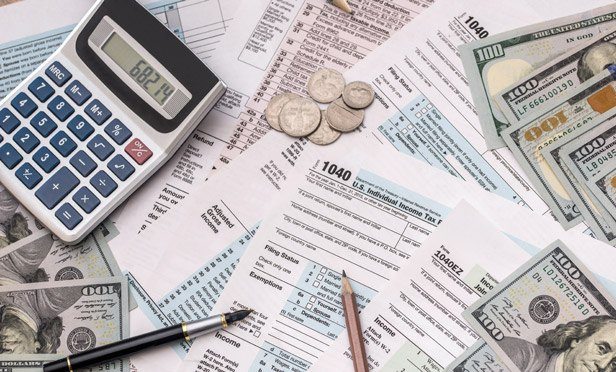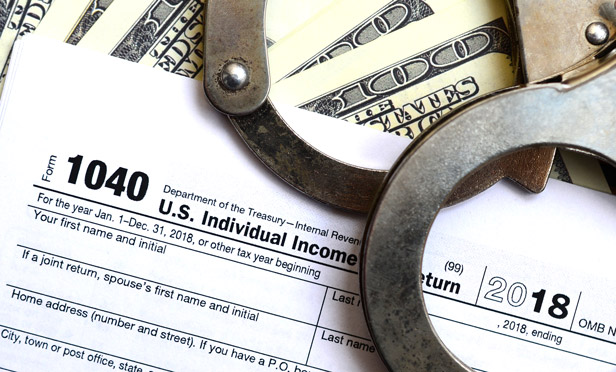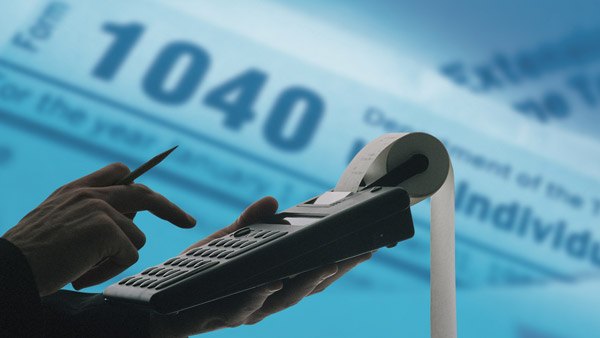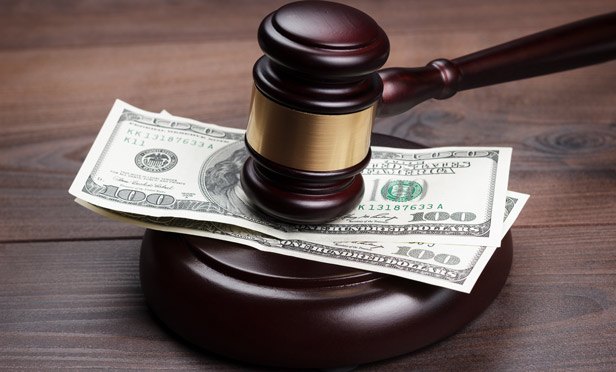
1. Phishing | Taxpayers should be wary of emails and websites that may be nothing more than scams to steal personal information. The IRS asserts that it will never initiate contact with taxpayers via email about a bill or tax refund. Don’t click on one claiming to be from the IRS. (Photo: Shutterstock)

(Photo: Shutterstock)

3. Identity Theft | The IRS reminds taxpayers that they can help prevent this crime by being alert to scammers’ tactics aimed at stealing their identities, not just during the tax filing season, but all year long. (Photo: Shutterstock)

4. Return Preparer Fraud | Although most tax professionals provide honest, high-quality service, some dishonest preparers hang out their shingles each filing season to scam clients, perpetuate refund fraud and steal identities. (Photo: Shutterstock)

5. Inflated Refund Claims | Any preparer who asks clients to sign a blank return, promises a big refund before looking at taxpayer records or charges fees based on a percentage of the refund is probably up to no good, according to the IRS. Such fraudsters may use flyers, phony storefronts or word of mouth via community groups where trust is high to find victims. (Photo: Shutterstock)

6. Falsifying Income to Claim Credits | Some con artists may persuade gullible taxpayers to invent income to qualify for tax credits, such as the Earned Income Tax Credit. This scam can result in big bills to pay back taxes, interest and penalties, the IRS says. Taxpayers should file the most accurate tax return possible because they are legally responsible for what is on their return. (Photo: Shutterstock)

7. Falsely Padding Deductions on Returns | Taxpayers should think twice before overstating deductions, such as charitable contributions and business expenses, or improperly claiming credits, such as the Child Tax Credit, in order to pay less than they owe or potentially receive larger refunds. Preparing an accurate tax return is a taxpayer’s best defense against scams — and the best way to avoid triggering an audit, the IRS notes. (Photo: Shutterstock)

8. Fake Charities | Charitably minded individuals should take a few extra minutes to ensure that their donations go to legitimate charities. Groups masquerading as nonprofits — sometimes using names similar to familiar or nationally known organizations — solicit donations from unsuspecting contributors. IRS.gov has tools taxpayers can use to check out the status of charitable organizations. (Photo: Shutterstock)

9. Excessive Claims for Business Credits | Taxpayers should avoid improperly claiming the fuel tax credit, a credit usually limited to off-highway business use, including use in farming. As well, they should not misuse the research credit. Improper claims often involve failure to participate in or substantiate qualified research activities or satisfy the requirements related to qualified research expenses. (Photo: Shutterstock)

10. Offshore Tax Avoidance | People involved in offshore tax avoidance have learned the hard way that it’s a bad bet to hide money and income offshore, thanks to successful enforcement actions. The IRS says these folks are best served by coming in voluntarily and getting caught up on their tax-filing responsibilities. (Photo: Shutterstock)

11. Frivolous Tax Arguments | One way to try to avoid paying tax is to make unreasonable and outlandish claims about the legality of doing so. The bad news for these claimants is that their arguments have been repeatedly thrown out in court. There's also a $5,000 penalty for filing a frivolous tax return. (Photo: Shutterstock)

12. Abusive Tax Shelters | Taxpayers should be on the lookout for people peddling tax shelters — including trusts and syndicated conservation easements — that sound too good to be true. The IRS recommends that taxpayers seek an independent opinion regarding complex products they are offered. (Photo: Shutterstock)
The Internal Revenue Service announced this week that its Criminal Investigation unit, working with the Justice Department’s tax division and U.S. attorneys around the country, had made 11 arrests, indicted 15 individuals and seen five other individuals or businesses sentenced for committing some type of identity theft or refund fraud scheme.
“Identity theft is a pervasive crime and stopping it remains a top priority of the IRS,” IRS commissioner Charles Rettig said in a statement. “We are fighting this problem with enhanced systems, smarter technology and the efforts of our dedicated workforce, including Criminal Investigation. We will retain our relentless, vigorous pursuit of those who prey upon others in this arena.”
Identity theft is one of a dozen scams the IRS considers it necessary to alert taxpayers to every tax season and year-round.
“Millions of taxpayers put their trust in tax professionals to prepare accurate and lawful returns,” Criminal Investigation chief Don Fort said in the statement. “Unfortunately, a few bad apples take advantage of that trust for their own greed and profit.”
Take a look at the gallery for the 2019 “Dirty Dozen,” according to the IRS.
— Related on ThinkAdvisor:



















